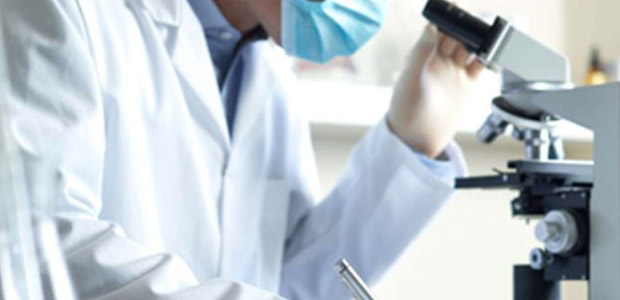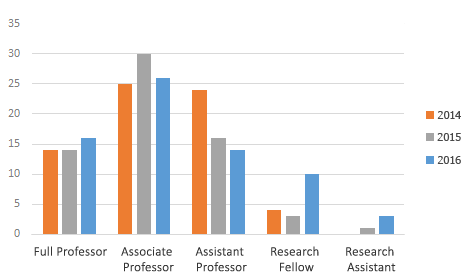Dipartimento di Medicina traslazionale
 The Department of Translational Medical Science (DISMET) was founded by professors from the Departments of Internal Medicine, Pediatrics and Pediatric Surgery and Clinical Pathology. The Department aims to promote the transfer of knowledge from basic science to clinical practice for patients of all ages. The Department provides answers to the new requests from the scientific community interested in the translational research and in the technology transfer and applications in the biomedical field. The main feature of the research is a multidisciplinary approach to the study of the molecular basis of hereditary, metabolic, endocrine, cardiovascular, gastroenterological, rheumatologic, pneumological, neurological, oncologic, infectious and immunologic diseases. The Department coordinates the PhD course in Clinical and Experimental Medicine. The training activities promote the application of biotechnology and molecular technologies in medicine. (http://www.medicinatraslazionale.unina.it/06_didattica/didattica_05b.html). Within the Department operate the Interdepartmental Centre for Research in Basic and Clinical Immunological Sciences (CISI) and the Inter-University Center "European Laboratory for the Investigation of Food Induced Diseases" (ELFID).
The Department of Translational Medical Science (DISMET) was founded by professors from the Departments of Internal Medicine, Pediatrics and Pediatric Surgery and Clinical Pathology. The Department aims to promote the transfer of knowledge from basic science to clinical practice for patients of all ages. The Department provides answers to the new requests from the scientific community interested in the translational research and in the technology transfer and applications in the biomedical field. The main feature of the research is a multidisciplinary approach to the study of the molecular basis of hereditary, metabolic, endocrine, cardiovascular, gastroenterological, rheumatologic, pneumological, neurological, oncologic, infectious and immunologic diseases. The Department coordinates the PhD course in Clinical and Experimental Medicine. The training activities promote the application of biotechnology and molecular technologies in medicine. (http://www.medicinatraslazionale.unina.it/06_didattica/didattica_05b.html). Within the Department operate the Interdepartmental Centre for Research in Basic and Clinical Immunological Sciences (CISI) and the Inter-University Center "European Laboratory for the Investigation of Food Induced Diseases" (ELFID).
Research output (2011-2013)

Data on the research output of the Department are extracted from the 2011-2013 Research activities Review (SUA-RD)
Staff

Data on the Department Staff is taken from the institutional website of the Italian Ministry of University and Research
Research areas
Research projects
- 1) Project title: AUTOMATED: Analysis of the molecular mechanisms of autophagy in cancer and neurodegenerative diseases.Funding: Italian Ministry of University and Research (FIRB 2012)Project leader: Prof. Andrea Ballabio
- 2) Project title: Generation of functional astrocytes from skin fibroblasts for neurodegeneration treatment in lysosomal diseases.Funding: Italian Ministry of University and Research (FIRB 2013)Project leader: Dr. September Carmine
- 3) Project title: Study for a diagnostic tool for genomics and post-transcriptomics therapeutic approaches for type 2 diabetes (DIAGEN-SC).Funding: Italian Ministry of University and Research (PON research and competitiveness 2007/2013)Project leader: Prof. Peter Formisano
- 4) Project title: Genes, environment and metabolism: predictors, modulators and vascular markers of aging and cardiometabolic riskFunding: Italian Ministry of University and Research (PRIN2012)Project leader: Prof. Francesco Beguinot
- 5) Project title: Innovative therapies for chronic inflammatory diseases, metabolic, neoplastic and Geriatric - TIMINGFunded by: Campania Region (ROP ERDF 2007/2013)Project leader: Prof. Gianni Marone
- 6) Project Title: Integrated Biotechnology for Innovative Therapies and Personalized Oncology and Cardiovascular Diseases - Ockey //////// Ockey - Oncology and Cardiology Key TargetsFunded by: Campania Region (ROP ERDF 2007/2013)Project leader: Prof. De Simone
- 7) Project title: Neonatal screening for early detection of cystic fibrosis in the Campania regionFunded by: Campania Region (2013)Project leader: Prof. Riccardo Troncone
- 8) Project title: Microbiota as potential target for innovative preventive and therapeutic strategies for food allergy.Funding: Italian Ministry of Health (2011)Project leader: Prof. Roberto Berni Canani
- 9) Project Title: Hedgehog signaling and polycistic kidney disease: implication for therapeutic approaches.Funding: Compagnia San Paolo and University of Naples "Federico II" (2014)Project leader: Dr. Manuela Morleo and Prof. Franco Brunella
- 10) Project title: MEUSIX - Clinical trials of gene therapy for MPS VI-strict lysosome storage disorderFunding: FP7 - European Commission (2012)Project leader: Prof. Generoso Andria.
Libraries, labs and facilities
The Department has a library that offers a wide range of journals. It is equipped with a meeting room and PCs. (http: //acnp.unibo.it/cgi-ser/start/it/bib/df-b.tcl? Libr = NA171)
The DISMET host a wide range of Laboratories:
- Laboratory of echocardiography, vascular tonometry and ergospirometry: to study heart failure and cardiovascular damage during anti-neoplasic treatment.
- Laboratory of experimental cardiology: to study the molecular mechanisms involved in the pathogenesis of hypertrophy / ventricular dysfunction in transgenic mice and in primary cultures of neonatal rat cardiomyocytes.
- Laboratory of experimental endocrinology and metabolism: to study chronic heart failure, hormone profiles and hormone replacement therapy for chronic heart failure in experimental models.
- Laboratory of experimental geriatrics: to study G-protein coupled receptor role and mechanisms of adrenergic cardiac and adrenal signal transduction.
- Laboratory of inflammation angiogenesis: to characterize the proinflammatory and immunomodulatory effects of phospholipase A2 in human immune cells.
- Laboratory of innate immune response in connective tissue diseases: to study the role of PRRs on neutrophils and monocytes of RA patients and healthy donors to test the effects of immunomodulators and biological drugs.
- Laboratory of H.pylori disease: to study the effect of virulence factors on eosinophils and mast cells activation.
- Laboratory for the evaluation of epithelial-mesenchymal transition (EMT): to study the effects of formylated peptides receptors on the expression of epithelial and mesenchymal markers; and the expression of transcription factors involved in EMT.
- Laboratory of angiogenesis: to study the angiogenic potential of mast cells and basophils.
- Laboratory of immunoeficiencies in adult patients: to study the molecular markers and clinical phenotypes able to identify subgroups of patients with congenital immunodeficiency.
- Laboratory of the elderly: to study sarcopenia and frailty in the elderly using mixed criteria (CHS index + DEFICIT index) and European sarcopenia algorithm.
- Laboratory of orthostatic hypotension / syncope in the elderly: to study the neuro-autonomic at baseline and standing positions (Head-up Tilt Test).
- Laboratory of clinical nutrition and gastroenterology: to study the nutritional status in children, parenteral nutrition therapy, intestinal failure-associated diarrhea, nutrigenomic and perceptive profiles, candidate genes for celiac disease and congenital diarrheal disorders.
- Laboratory of intestinal cell biology and immunology: to study growth factors in the intestinal mucosa, intestinal innate and adaptive immune response, identification of molecular and cellular basis of celiac disease.
- Laboratory of pediatric immunology: to study the primary immunodeficiencies pathogenesis and molecular mechanisms involved in the activation of lymphocytes.
- Laboratory of infectious diseases: to study the interaction microorganisms / intestinal mucosa, etiology enteropathy AIDS.
- Laboratory of genetics: to study molecular and innovative therapies for genetic and metabolic disorders.
- Laboratory of allergy: to study the mechanisms of tolerance acquisition, epigenome, new diagnostic and therapeutic strategies for food allergies.
- Laboratory of immunology: to study innate and adaptive response and its regulation in models of immune-mediated disorders, autoimmune and cancer.
- Laboratory of molecular oncology: to study the therapeutic effect of oncolytic viruses, new tumor markers, molecular basis of cancer risk associated with diabetes and obesity.
- Laboratory of molecular pathology of metabolism: to investigate the epigenome of diabetes risk and new strategies for the treatment of type 2 diabetes and its complications.
- Laboratory for the study of physiological and molecular adipose tissue: to study the mechanisms involved in the differentiation of adipose tissue and its functions in various pathological conditions of man.
- Animal house: for the housing of mice and rats, equipped with more than 500 cages for mating and birth, treatment room and separate room for surgery.
Main Research Facilities
- - FLOW CYTOMETER BENCH Fortessa BECTON DICKINSON: high technology analyzer with limitless flexibility in the choice of excitation laser lines and filters for selecting the output signals, used to analyze the physical and chemical characteristics of the particles.
- - GENETIC ANALYZER APPLIED BIOSYSTEMS: last generation sequencer for DNA fragments analysis.
- - Pyrosequencing SYSTEMS Explera: for an accurate and fast real-time analysis of DNA sequences.
- - EasyMount CHAMBER SYSTEMS - INSTRUMENTS INC: for the study of transepithelial fluids transport.
- - Echocardiograph Toshiba Aplio: ultrasound probes with dedicated high-resolution image for the study of cardiac diseases.
Third mission
The DISMET is frequently involved in clinical trials sponsored by national and international private Companies. About 30 trials per year were developed in the DISMET. Many professors of the Department organize and actively participate as teachers in ECM courses and training activities.
Patents
- - Agents with antitumor activity 'inhibitory protein prenylation, process of preparation and uses in the medical field: The invention relates to antitumor compounds that inhibit prenylation of the oncogene protein Ras, whose activation governs the uncontrolled growth of tumors and their metastases. In fact, this protein is over-expressed in 25% of the most common cancers, including cancers particularly recalcitrant to therapy as adenocarcinomas of the colon, pancreas and lung. The common anti-cancer agents, currently used in therapy, have as a limiting factor to inhibit either the proliferation of cancer cells and normal cells. On the contrary, the compounds of this invention have the advantage of inhibiting the proliferation of tumor cells, while leaving normal cells unaffected, to the cytotoxic concentration. The compounds of this invention are all possible derivatives of the general formulas (I) and (II) reported in the attached Table 1. The present invention also includes the chemotherapeutic compositions of said compounds, their physical and chemical characteristics, the use and processes for their preparation.
- - TFEB variants and uses thereof: Refers to the invention TFEB related molecules, as variants, mutants, truncated proteins, chimeras, etc. That are constitutively localized in the nucleus of a eukaryote cell. Such molecules have a therapeutic applicability in all of disorders That need of an induction of the cell authophagic / lysosomal system, as lysosomal storage disorders, neurodegenerative diseases, hepatic diseases, muscle diseases and metabolic diseases.
Public engagement
- Initiative 1 - Date of the initiative 12-13/12/2013. Title: Marathon Television Telethon. Category / categories of activities of public engagement: - Participation in broadcasting at national or international level for fundraising activities to support scientific research on rare genetic diseases. (https://www.youtube.com/user/Telethonitalia)
- Initiative 2 - Date of the initiative 29/04/2013. Title: World Day of Immunology. Category / categories of activities of public engagement: Popular initiatives aimed at children and young people. Short description: Educational activity to introduce young people to the world of immunology. Meetings in schools and scientific meetings held in Rome and Naples have brought the attention on the importance of immunology as a scientific discipline for the health.
- Initiative 3 - Date of the initiative: 01/01/2013 - 30/12/2013. Title: European Innovation Partnership for Active and Healthy Aging (EIP-AHA), European Commission, Brussels, Belgium. Category / categories of activities of public engagement: - Participation in the formulation of programs of public interest (policy-making) - Participation in committees for the establishment of standards and technical regulations. Short description: It includes more than 1,000 stakeholders across EU aiming to increase the average number of two years of healthy life in the EU by 2020. (http://ec.europa.eu/research/innovation-nion/index_en.cfm?section=active-healthy-ageing)
- Initiative 4 - Date of the initiative: 16-18/12/2015. Title of the initiative: Futuro Remoto. Food Genes and Health: present and future in food induced diseases. Naples, Italy. Category / categories of activities of public engagement: - Popular initiatives aimed at children, young people and adults. Short description: to explain the new world of nutrition and its role in preventing food-induced diseases. (www.cittadellascienza.it/futuro remoto)
Research and educational activities at the DISMET are well integrate with the activities of two Clinical Departments, the Department of Internal Medicine and Clinical Pathology and the Department of Pediatrics, which host major referral regional centers for: rare diseases (http : //www.policlinico.unina.it/siti/MR/), cystic fibrosis (http://www.fibrosicisticapedcampania.it), pediatric celiac disease, pediatric diabetes, pediatric HIV infection, pediatric inflammatory bowel
diseases, pediatric rheumatic diseases, pediatric artificial nutrition (http://www.policlinico.unina.it/Applications/5appl/cartaServizi/crr/crr.php)
Video: http://www.youtube.com/watch?v=VJo2PvSFNOc